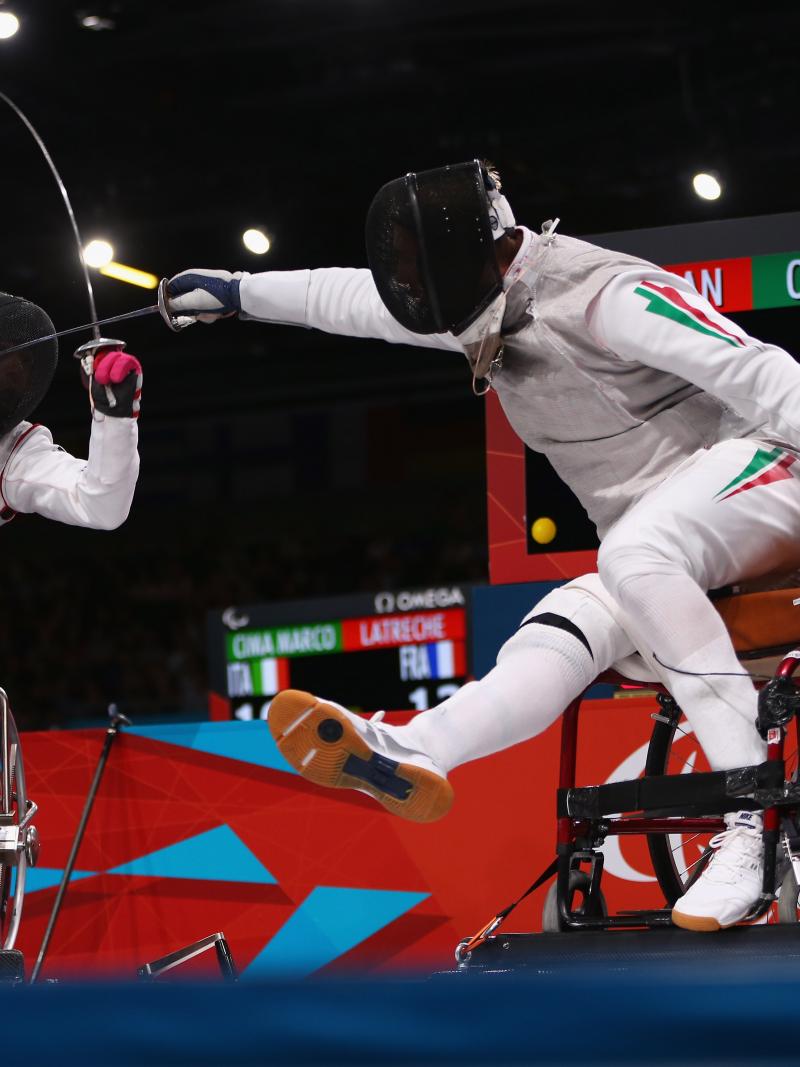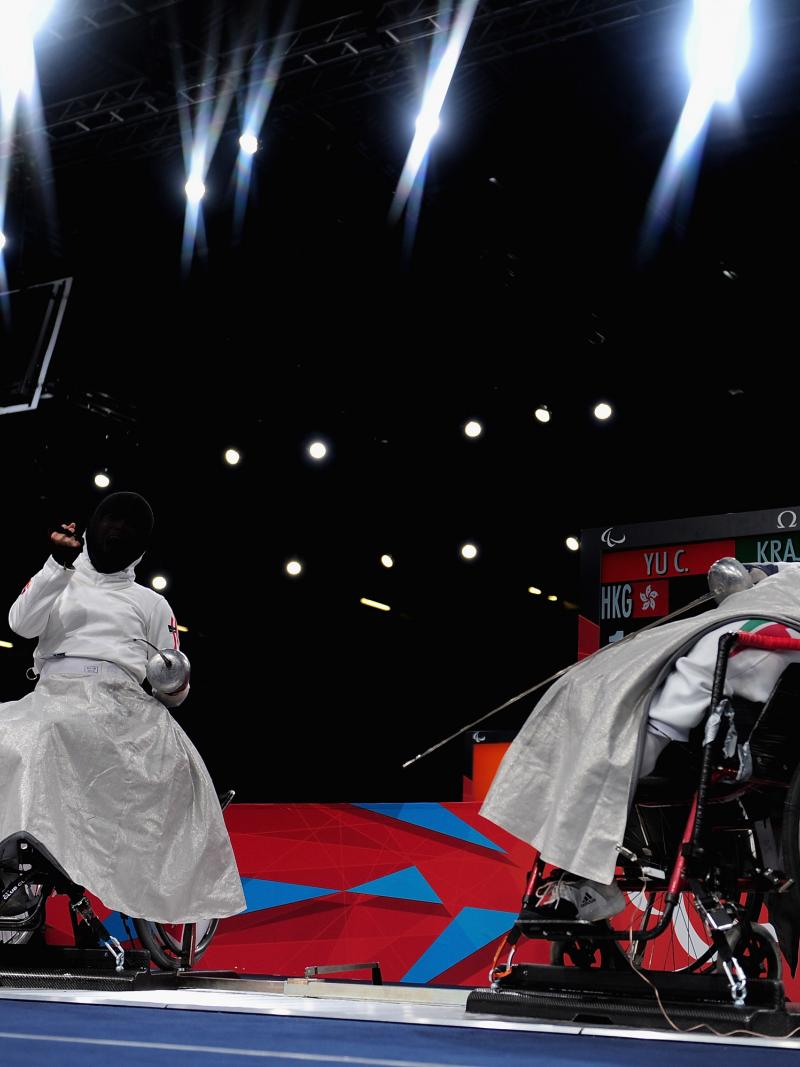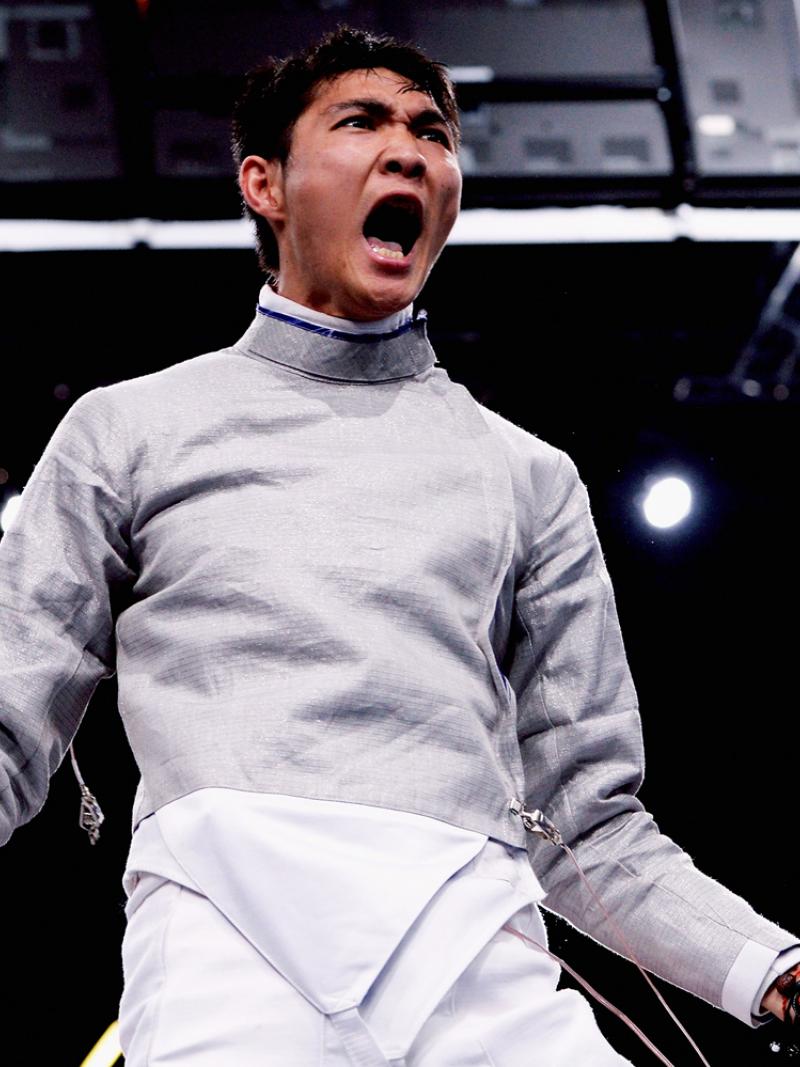China grab 10 golds at Wheelchair Fencing Worlds
Yijun Chen and Jing Bian shined for China in Budapest, with the top delegation also faring will in the team events. 13 Aug 2013
China followed up their impressive London 2012 wheelchair fencing performance by being the top delegation at the World Championships this year.
With the next major wheelchair fencing tournament, the Hong Kong Grand Prix, not taking place until December, those who didn’t perform to their expectations have time to regroup.
China took home much of the glory at the IWAS Wheelchair Fencing World Championships, which concluded on Monday (12 August) in Budapest, Hungary, where the Chinese delegation took home 10 gold medals – five on the men’s side and five on the women’s side.
The dominating nation won three team events, including the men’s epee and foil team disciplines and the women’s epee team competition.
The IPC’s One to Watch athlete Yijun Chen, a two-time Paralympic champion, certainly did not disappoint in Budapest. He clinched the title in the men’s sabre category A, just ahead of compatriot Jianquan Tian, with Ukraine’s Andrej Demchuk and France’s Ludovic Lemoine sharing the bronze.
In a hotly contested men’s epee category A final, Tian went on to win an individual gold of his own, out-doing France’s Romain Noble for the top prize. Another Chinese athlete, Gang Sun, shared the third spot on the podium with Russia’s Artur Yusupov.
On the women’s side for China, Jing Bian was equally impressive, winning the sabre individual contest, as Ukraine’s Natalia Morkvych claimed the silver and her teammate Yevheniia Breus shared the bronze with American rising star Cat Bouwkamp.
Whilst delegates from China were celebrating a team performance that reaffirmed their place as the major force in wheelchair fencing, there was disappointment for the Hungarian athletes. With some strong performers within their ranks the Hungarian team were hoping to channel the electric support at the Syma Event and Congress Centre, but were unable to give their home crowd a title to cheer.
The excitement reached fever pitch when Hungary’s Richard Osvath reached the final of the men’s category foil competition, but China’s Ruyi Ye proved too strong, exhibiting the same class which saw him take gold in the event at London 2012 as he won 15-7.
There were several upsets at the tournament, too, the biggest of which came in the women’s category A epee competition. Having already won the equivalent foil event, Hong Kong’s multiple Paralympic gold-medal winner Yu Chui Yee could only finish eighth, knocked out of the draw by Poland’s Marta Fidrych of Poland.
However, she recovered later in the competition, leading Hong Kong to victory in the women’s foil team event.
Another surprise in the same discipline was Hungarian favourite and reigning world No. 1 Zsuszanna Krajnyak not making the podium. Despite strong support from the crowds, Krajnyak was beaten 15-13 by Yulia Efimova of Russia. The event was won by China’s Jing Rong, who beat compatriot Baili Wu in the final.
A shock came in the men’s category B foil, with Anton Datsko’s incredible unbeaten run in recent tournaments coming to an end. The Ukrainian was beaten 15-12 in the final by rival Daoling Hu of China.
It is a defeat that will be tough to take for Datsko who was also defeated by Hu in the final at London 2012.
Belarus’ Nikloai Bezyazychny and Russia’s Marat Yusupov of Russia shared the third place positions.
Datsko was unable to make amends in the category B Sabre discipline, finishing in an uncharacteristic sixth place.
The event was won by Italy’s Alessio Sarri, who cruised to a 15-7 final win over Frenchman Marc-Andre Cratere. Favourite Grzegorz Pluta of Poland took joint third place alongside countryman Adrian Castro.
There was finally joy for Datsko in the men’s sabre team event, with Ukraine emerging from the final with a hard-fought 45-43 victory over Hong Kong.
Top-seeded Polish athlete Dariusz Pender came some way short of a overcoming a recent run of inconsistency with an eight-place finish in the men’s category A epee event. China’s Jianquan Tian performed brilliantly in the final to win the title, securing a 15-6 victory against France’s Romain Noble.
Italian prodigy Beatrice Vio also couldn’t replicate her strong form of previous months on the World Championship stage. The 16-year-old athlete finished in 10th place in the women’s category B foil. The event was won by China’s Fang Yao in a 15-14 battle against Hong Kong’s Yui Chong Chan.
Iraq’s Ali Amar caught people’s attention when he took the men’s category B epee gold medal at the World Cup event in Lonato, Italy back in May, and he again impressed with his performances at the World Championships. Seeded seventh, Amar exceeded expectations by reaching the final in Budapest where he was beaten by fourth seed Alexander Kuzyukov of Russia.
Amar also played an important role in Iraq’s third-place finish in the men’s team epee event. China comfortably took the title in a final against Russia. China also beat Russia in the final of the men’s team foil event.
In the men’s category C epee contest, Alex Logutenko further built on victory at last month’s Wheelchair Fencing World Cup in Warsaw, beating the USA’s Curtis Lovejoy by one point in a tense final match. Logutenko also won with the foil, topping a podium which featured Russian athletes on each tier of the podium – Sergey Barinov in second place and Sergey Lukyanov in third.
With the next major wheelchair fencing tournament, the Hong Kong Grand Prix, not taking place until December, those who didn’t perform to their expectations have time to regroup.
For the Chinese contingent, however, there is a chance to enjoy their recent performances before attempting to further underline their dominance in the sport closer to home.

 Facebook
Facebook
 Instagram
Instagram
 Twitter
Twitter
 Youtube
Youtube
 TikTok
TikTok
 Newsletter Subscribe
Newsletter Subscribe



